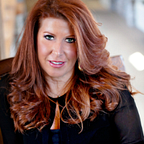How Boeing’s CEO of Global Services is Tackling Racial Equality & His Call To Action For Other CEOs
Last year’s racial justice protests in the wake of repeated instances of police brutality and generations of systemic inequality created a groundswell of support for new programs and platforms to help solve these problems.
For companies, this represented an opportunity to re-evaluate their approaches to hiring, developing, and promoting diverse teams, especially from the Black and Latino community. In response, organizations pledged billions to support diversity efforts, putting significant financial backing to these long-overdue initiatives.
Of course, pledges and promises are not the same as outcomes and systemic change.
That’s one of the obvious takeaways from last year’s racial unrest, which is why Boeing’s efforts transcend the noise, serving as a model for other companies striving to follow through on their racial equity commitments.
Ted Colbert, president and CEO of Boeing Global Services, has been at the forefront of these efforts at Boeing, helping shape their programs and priorities while grappling with the complexity of unwinding generations inequity among minority communities.
Boeing’s Background of Diversity & Inclusion
Boeing has a track record for pursuing inclusion efforts across its expansive company. Equity, diversity and inclusion are part of the company’s foundational values and they form an important part of its business strategy. Even before recent events brought renewed attention to diversity and inclusion, Boeing elevated the priority to its executive council, making it a regular part of the aerospace manufacturer’s monthly operating rhythm.
As Colbert explains, “The executive council, CEO, and direct reports took a keen interest in diversity.”
Ultimately, the group decided to take a targeted approach to closing the diversity gap at Boeing. For example, “One year, we focused on improving our hiring and retention for women. Making sure we had women in the right place and time from a leadership perspective,” Colbert recalls.
At the same time, Boeing leaned on existing networks and resources. For example, the company turned to the National Society of Black Engineers and the Society of Women Engineers to help fill talent gaps throughout the organization.
In other words, as Colbert notes, Boeing was “Recruiting in large numbers to seed our workforce with strong, diverse talent.”
These efforts helped set the stage for 2020, when Boeing would pursue even more impactful action.
Achieving Clarity in 2020 and Beyond
Recent events added to and accelerated additional efforts to make progress on racial equity to further Boeing’s efforts around diversity and inclusion. The result was an equity action plan that raised the proverbial bar across several aspects of the company. Critically, Boeing was looking for measurable progress that drives equity outcomes while fostering a culture of accountability.
The effort yielded a multi-step approach to close Boeing’s racial equity gap. It includes:
- Closing the largest representation gaps across the enterprise and continuing to ensure equitable compensation practices for all.
- Increasing the representation rate of Black Boeing employees in the United States by 20%.
- Holding leaders accountable for helping the company reach its representation targets and removing institutional barriers to equity.
- Establishing a Racial Equity Task Force made up of representatives from diverse backgrounds from across the company to serve as a long-term think tank to help guide the company’s plans for addressing racial equity and inclusion.
- Taking action against behavior that runs counter to the company’s values, whether in the workplace or other online channels.
At the same time, Boeing is strengthening its zero-tolerance policy for in-person or online speech that violates its values.
Outside the company, in 2020, Boeing announced its commitment to invest an additional $25 million over the next four years in community programs that create opportunities for people of color, and it’s launching the Boeing Institute of Civility in partnership with Allen University. The Institute will be a national hub for teaching and provide programming aimed at advancing civil discourse in America and across the globe.
Measuring Change
Ultimately, Boeing is looking to make measurable progress. The company will release its first Global Equity, Diversity & Inclusion metrics report this year, marking the first time Boeing has shared these numbers publicly.
The results are not expected to be flattering. Colbert describes it as “a huge plate of humility.”
“We believe that we need to make progress, and the first part of change is acknowledgment. Being transparent about where we are,” he continues.
Equity remains elusive for many organizations, and Boeing faces a long road to achieving their desired outcomes. However, Colbert promises, “It’s no kidding. We are going to hold ourselves accountable for making progress.”
Conclusion
Boeing is just one of many companies recognizing the need to create a more fair and equitable workplace. This value isn’t purely altruistic.
As Colbert observes, “Companies are leaving money, innovation, and competitive advantage on the table when they ignore R&D equity.”
Massive protests and broad consensus are winning the day, but Colbert and Boeing know that they will need something more powerful to sustain this type of momentum. At the onset of Black History Month, many remember the legacies of civil rights leaders and cultural icons from the past. In that spirit, Colbert encourages decision-makers, “MLK has to be in each and every one of us.”
